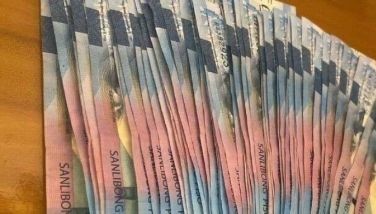Maharlika Investment Fund
There is nothing new about sovereign wealth funds. Actually, according to Global SWF’s 2022 report, at the start of this year, “there were 161, managing more than $10 trillion in assets.” In fact, it further reported that there are “many countries that have more than one fund.”
The truth is, according to IE University in Spain, no less than “70 countries had at least one sovereign wealth fund.” The largest of which is the China Investment Corporation in Beijing, according to Sovereign Wealth Fund Institute rankings. It has US$1.35 trillion in assets. Norway, through its Government Pension Fund Global, is not far behind in second place.
Among ASEAN member states, “two of the largest funds are in Singapore.” In fact, our lawmakers must have been encouraged by this country’s performance as, reportedly, their good “money management allows it to use investment profits to cover up to 20% of their national budget.” Timor Leste has its own as well. Likewise, Malaysia has one and Indonesia just had its sovereign wealth fund launched last year.
As sovereign wealth funds are prevalent and have given so much benefits to some countries, the citizenry should not have raised a howl on its establishment. But there were a lot. First, the sources of funds. Notably, most of the members of GSIS and SSS were up against the proposal for these institutions to partly fund it. We can’t blame them. With history of near bankruptcies of both pension funds, the apprehensions were normal.
Secondly, the composition of the Managing Board, which is supposedly, will be chaired by the President of the Republic, was met with the worst criticism. Probably, it was influenced by the citizens’ thoughts of his father’s regime. Remember, as the baby boomers are concerned, the word “Maharlika” came out first from the mouth of then President Ferdinand E. Marcos.
Heeding the concerns of some sectors, the proponents removed the two pension funds from the bill. Likewise, they removed the president as the Chair of the Managing Board. This time, the Secretary of Finance shall head the board. He will be joined in the board by the presidents of the other seed fund contributors and four independent directors.
Though the concerns were, supposedly, addressed, the public is still so suspicious by the pace this bill was approved by the lower house. Why the haste, they ask.
Honestly, these are valid concerns. Since this is the first time we are establishing this sort of sovereign fund, let’s take a look at other countries experiences. Yes, some countries benefited a lot from their sovereign funds. However, there are those countries that also have horrible experiences.
First and foremost, we have to know that sovereign wealth funds differ from country to country as far as sources of funds are concerned. Countries like Norway or even Timor Leste, are financing them with revenues from natural resources (such as, natural gases, oil or coal). Or, talking about Singapore, from its huge current account surplus. Obviously, we don’t have huge current account surpluses, but we have natural resources. The question now is, why are we not tapping the revenues from our natural resources (such as, natural gases)?
More importantly, we need to know that not all countries have rosy or healthy experiences with respect to maintaining sovereign funds. Malaysia has one of the worsts. The Malaysian sovereign wealth fund had to contend with a corruption case in 2015. Such scandal resulted in the imprisonment of its then prime minister, Najib Razak. Reportedly, about “$4.5 billion was looted from the investment fund, with hundreds of millions of public dollars allegedly transferred to his personal bank accounts.” This could probably be the reason why critics were suspicious of the president heading the board.
Also, having no politicians in the board doesn’t, automatically, mean better decision making. Temasek Holdings Limited, or simply Temasek, one of Singapore’s wealth funds had “a write-down of US$275 million after cryptocurrency exchange FTX went bankrupt in November.” Apparently, a consequence of a bad investment decision.
Simply put, while transparency is necessary, it is not enough to make the Maharlika Investment Fund beneficial to our economy or dreamed development. While honesty is a basic requirement, the managing board must be composed with impeccable people with unquestionable expertise and independence.
- Latest
























